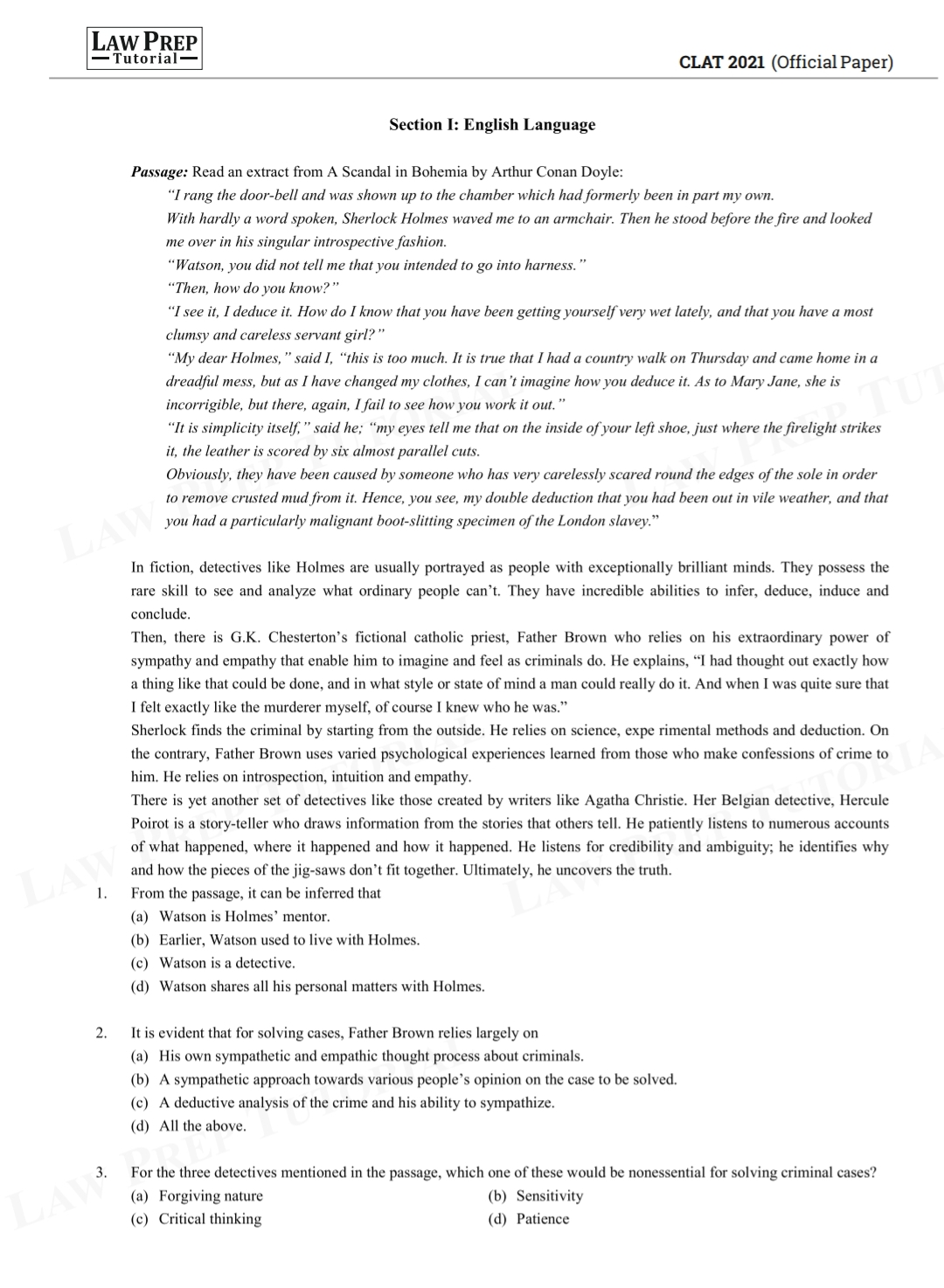From the passage, it can be inferred that (a) Watson is Holmes’ mentor. (b) Earlier, Watson used to live with Holmes. (c) Watson is a detective. (d) All the above. It is evident t... From the passage, it can be inferred that (a) Watson is Holmes’ mentor. (b) Earlier, Watson used to live with Holmes. (c) Watson is a detective. (d) All the above. It is evident that for solving cases, Father Brown relies largely on (a) His own sympathetic and empathic thought process about criminals. (b) A sympathetic approach towards people’s opinion on the case to be solved. (c) A deductive analysis of the crime and his ability to sympathize. For the three detectives mentioned in the passage, which one of these would be nonsensical for solving criminal cases? (a) Forgiving nature (b) Sensitivity (c) Critical thinking (d) Patience

Understand the Problem
The question is asking for interpretations and analyses based on a passage from Arthur Conan Doyle's 'A Scandal in Bohemia,' specifically relating to the characters Sherlock Holmes and Father Brown. It seeks to evaluate different statements about their roles and approaches to solving cases.
Answer
Earlier, Watson used to live with Holmes.
The final answer is (b) Earlier, Watson used to live with Holmes.
Answer for screen readers
The final answer is (b) Earlier, Watson used to live with Holmes.
More Information
The passage indicates Watson used to live with Holmes, as it mentions a chamber that was previously partly owned by Watson.
Tips
Readers might incorrectly infer Holmes as Watson's mentor due to his deductive skills, despite the passage hinting at shared living rather than mentorship.
Sources
- CLAT 2021 Complete Question Paper with Answer Key - Delhi Law - delhilawacademy.com
AI-generated content may contain errors. Please verify critical information